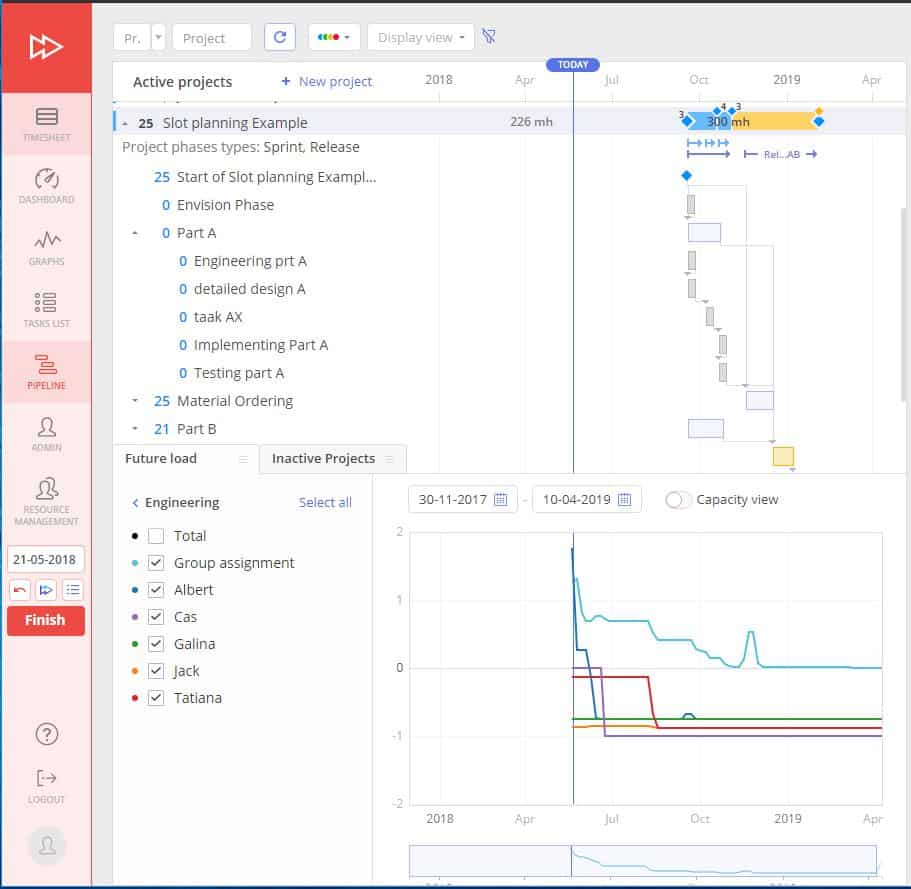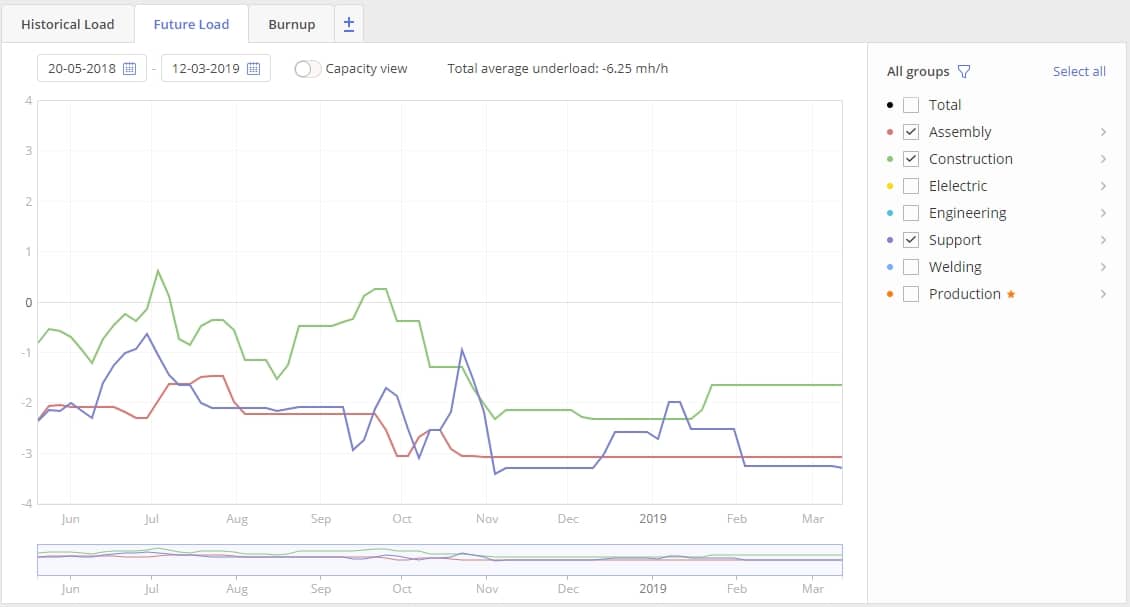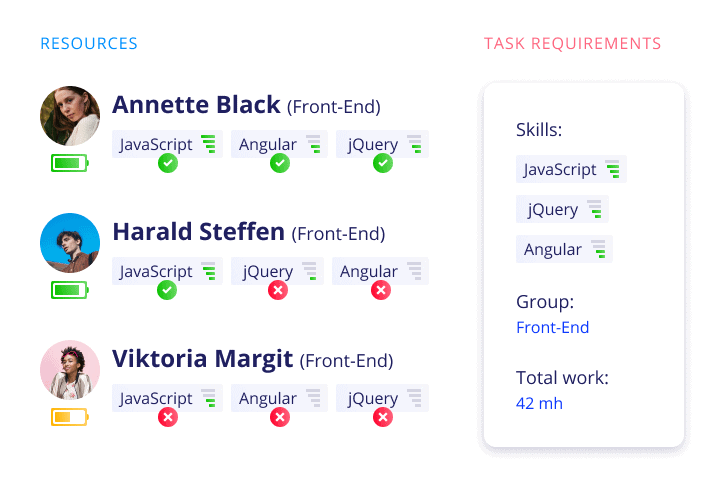“The resource manager has a nearly impossible job — with demands coming from every imaginable direction — yet a job that can have a profound impact on the organization’s success”, Neal Whitten
In an ideal world, resource managers assign people to projects in accordance with their skills and availability, make their decisions in the most fair and reasonable way, the relationships between the team members are helpful and supporting, and the team works like a single organism to meet the common objective. But companies and teams consist of different people with their values, attitudes, and behaviors. So, the reality is that resource managers may stumble over multiple challenges on their way. One of them is office politics, which exists in most environments and often affects the decision-making process.
How does office politics affect resource management, and how to handle these issues? Let’s take a closer look.
What Is Office Politics and What Does It Lead to?
Office (workplace) politics can be defined as informal or unofficial activities performed by individuals who use influence and/or persuasion to affect the outcome of an event, decision, or strategic direction [1]. In relation to project management, these actions usually involve gaining control or authority in order to influence decisions that can affect direction, scope, resource allocation, etc. For example, those engaged in office politics can make efforts to establish relationships necessary to gain a powerful voice in the decision-making process. The survey by Accountemps shows that 80% of employees say office politics exists in their offices, and more than a half of the surveyed (55%) take part in it.
Unfortunately, workplace politics and its impact are often underestimated until it’s too late. What does office politics result in?
- Office politics reduces employees’ productivity as they tend to concentrate on playing politics rather than work.
- It affects relationships between employees, and mutual trust between them can be broken.
- Workplace politics increases conflicts between colleagues; as a result, the working environment becomes an unpleasant place.
- Employees become demotivated by unfair attitude.
- Office politics may benefit a couple of employees, while the whole project or even the whole company will lose.
- Leaders may use their authority to influence the decision-making process for their own benefit.
Considering all these factors, it becomes nearly impossible to have a high-performing project team with individuals who are not only technically skilled but motivated to contribute to the project’s outcome.
Speaking about the impact of office politics on resource managers’ work, let’s bear in mind the background: multi-project environment and lack of resources. Due to office politics, resource managers may be exposed to pressure at the stage of resource allocation or assigning the tasks to the employees. For example, various team leaders may compete for an available employee if he or she is a perfect match for their tasks, and some of them may use their influence to force a resource manager to make decisions in their favor. The other example is the situation when senior management take particular interest in delivering a certain project and try to use their authority to influence the decisions made by a resource manager.
Despite the fact that resource managers cannot prevent employees or groups from engaging in office politics, they can arm themselves with the right tools to resist this phenomenon.
Resource Management Tools That Give You the Upper Hand When It Comes to Office Politics
One of the best ways to prevent the negative impact of workplace politics on your project is to use the potential of resource management software. With Epicflow, the multi-project resource management software, you can put real precise data against someone’s machinations, plan and allocate available resources in the most effective way. Let’s find out how Epicflow’s features can assist you in handling these issues.
Test Various Scenarios with What-If Analysis

There’s hardly anyone in the world who wouldn’t dream of seeing the future consequences of the decisions made, especially in the situations of uncertainty or when decisions made are vital. With What-If Analysis feature it becomes reality. It enables project/resource managers to evaluate possible project outcomes following the changes of particular variables; helps them in making more effective decisions; also, they can predict possible bottlenecks and understand what actions can be taken to cope with them. It’s like a time machine that can show how your current environment will change at a particular time in the future if you make a certain decision today: whether you deliver the project on time and budget if a particular task is assigned to a certain employee, or what will happen to other projects if you decide to take the new one. So, you can test various scenarios and compare them, which is a great help in the decision-making process.
Having various scenarios of the project flow or its outcomes under certain conditions, resource managers can prevent the impact of office politics and allocate resources in the most advantageous way possible.
Predict Potential Bottlenecks with Future Load

Future Load demonstrates how loaded your resources will be in the future depending on the current projects in your environment. Having an overloaded employee can lead to unfavorable consequences for the whole project, and resource managers always try to prevent it to avoid potential bottlenecks. Future Load shows where this potential bottleneck may be, so you’ll be ready to take necessary measures. In addition, this feature makes it possible to forecast which group will be idle in the future, and in case there is a lack of necessary resources for a certain task, the idle group can be trained to improve their skills to be able to help the overloaded group. Finally, the Future Load Graph shows employees’ capacity in comparison to their load and output. Therefore, you can find out what maximum output each team is able to produce.
How can this feature help resource managers who are under pressure from those engaged in office politics? It provides them with the information about potential difficulties in the future so that they can make reasoned decisions that will prevent possible bottlenecks instead of those that are profitable for someone’s interests.
Assign Resources That Are a Perfect Match for the Task with Competence Management

This is the feature whose algorithms automate the process of assigning employees to certain tasks. It provides the information on all the available resources with all their competences and levels and marks them with the colors: green for the skills perfectly developed for the task, yellow – for insufficiently developed, red means that the employee doesn’t have corresponding skills, and blue means that a resource is overskilled. In addition, you can see the capacity of each resource represented as batteries: green batteries demonstrate that a resource has the capacity to perform the task, yellow batteries mean that an employee has the capacity but in another group, and the red ones indicate that a resource has no capacity to perform the task.
So, the system helps resource managers find a perfect match to perform a certain task, which can be used to resist the pressure of any parties concerned.
Conclusion
Thus, office politics is a tricky but at the same time common phenomenon in most working environments, which can greatly affect the decisions made by a resource manager. If you find yourself in the same situation and would like to try and cope with politics issues by means of Epiclfow multi-project management software, feel free to contact us.
References
- Irwin, B. (2007). Politics, leadership, and the art of relating to your project team. Paper presented at PMI® Global Congress 2007—North America, Atlanta, GA. Newtown Square, PA: Project Management Institute.

